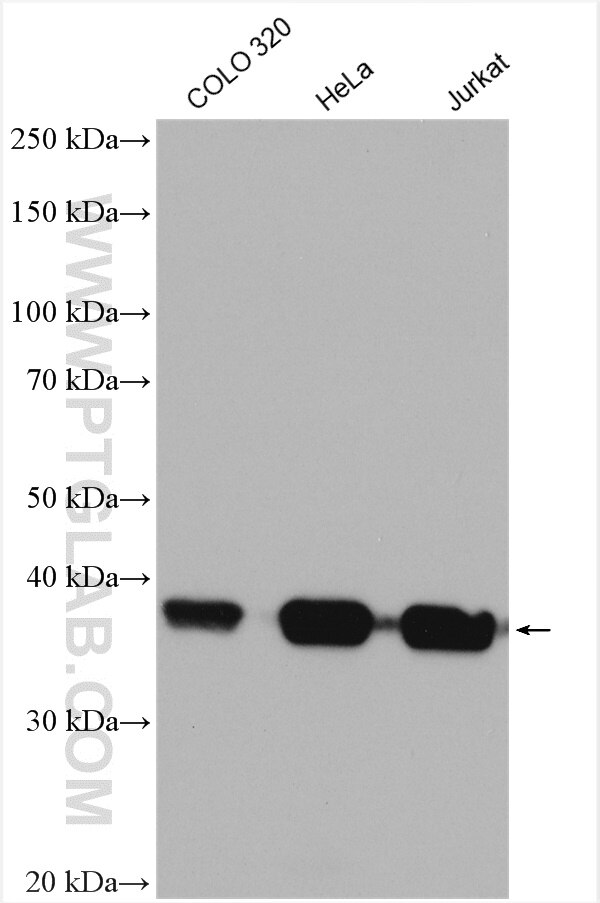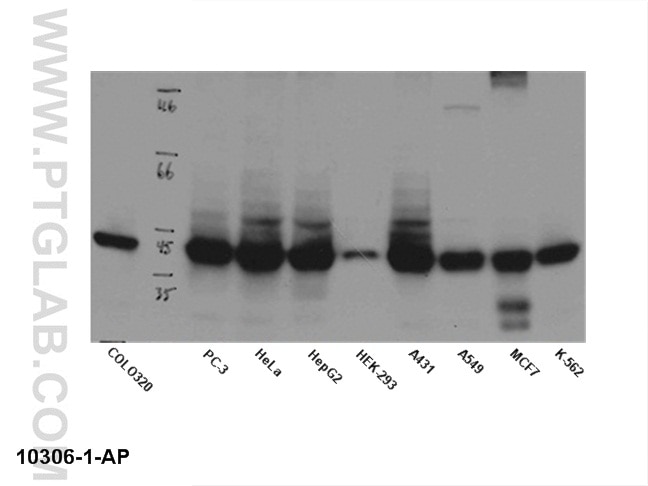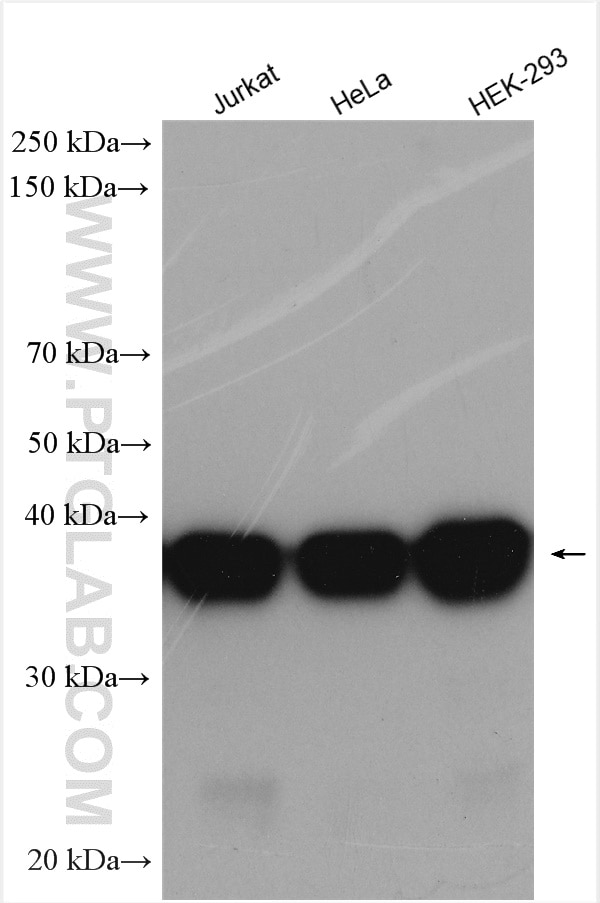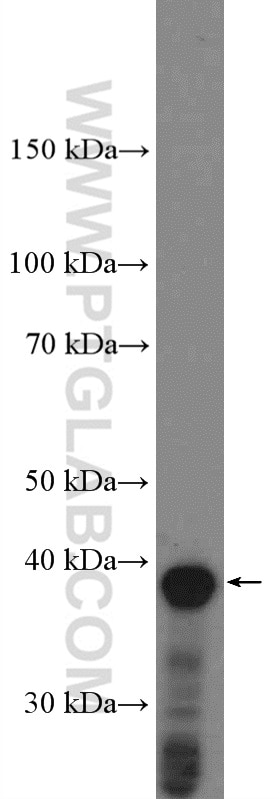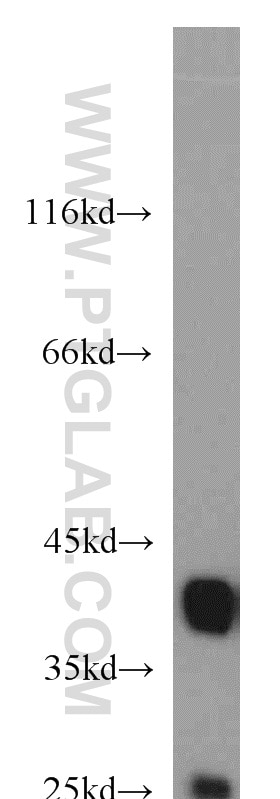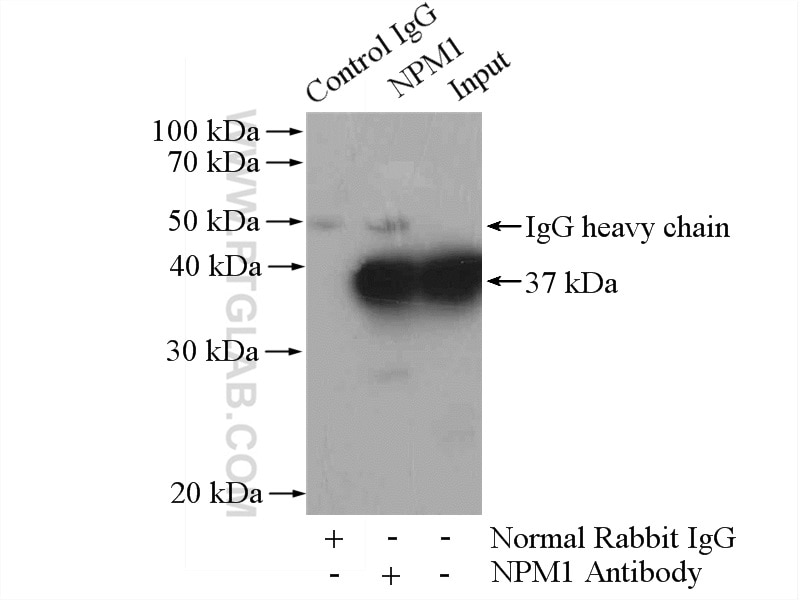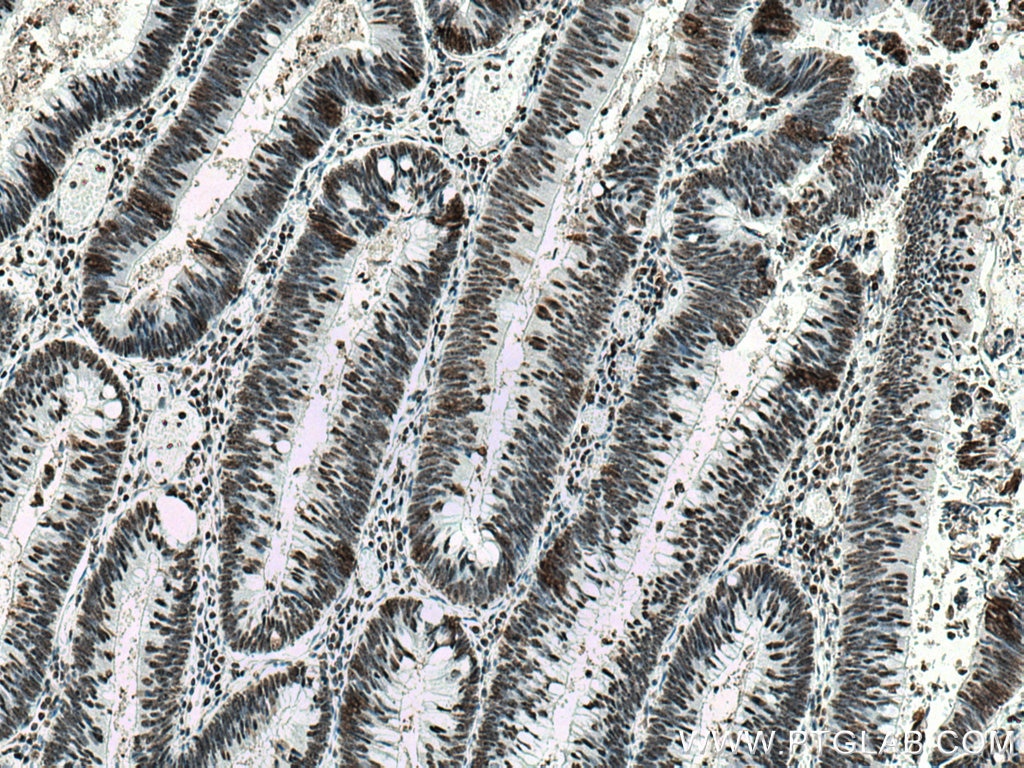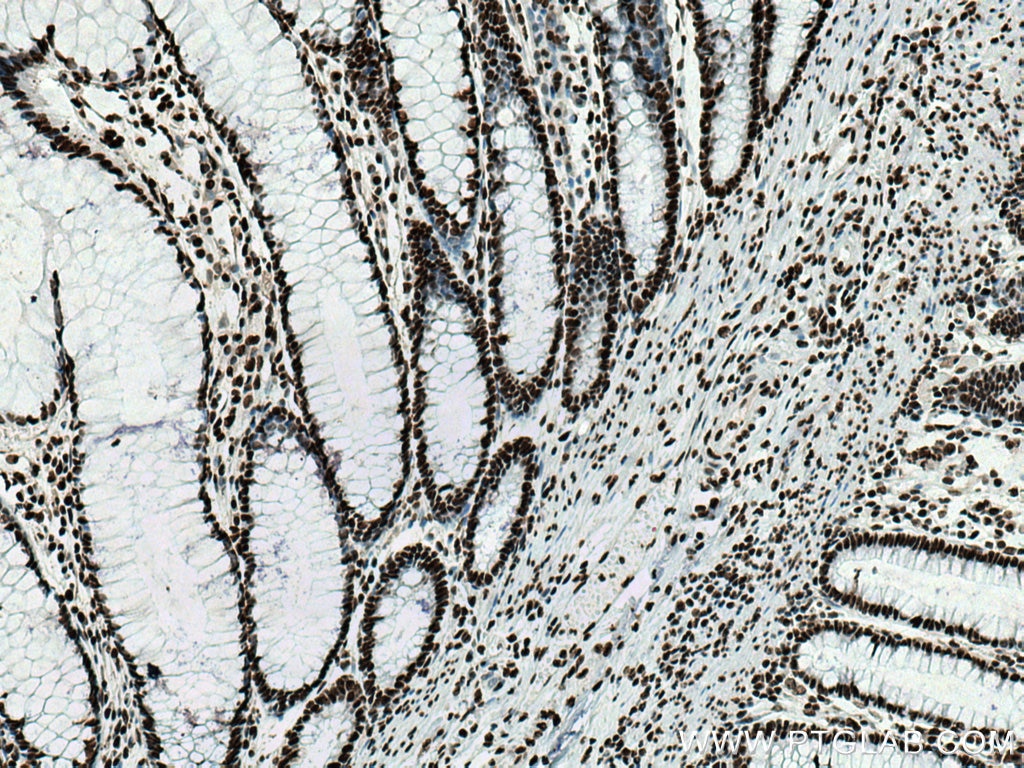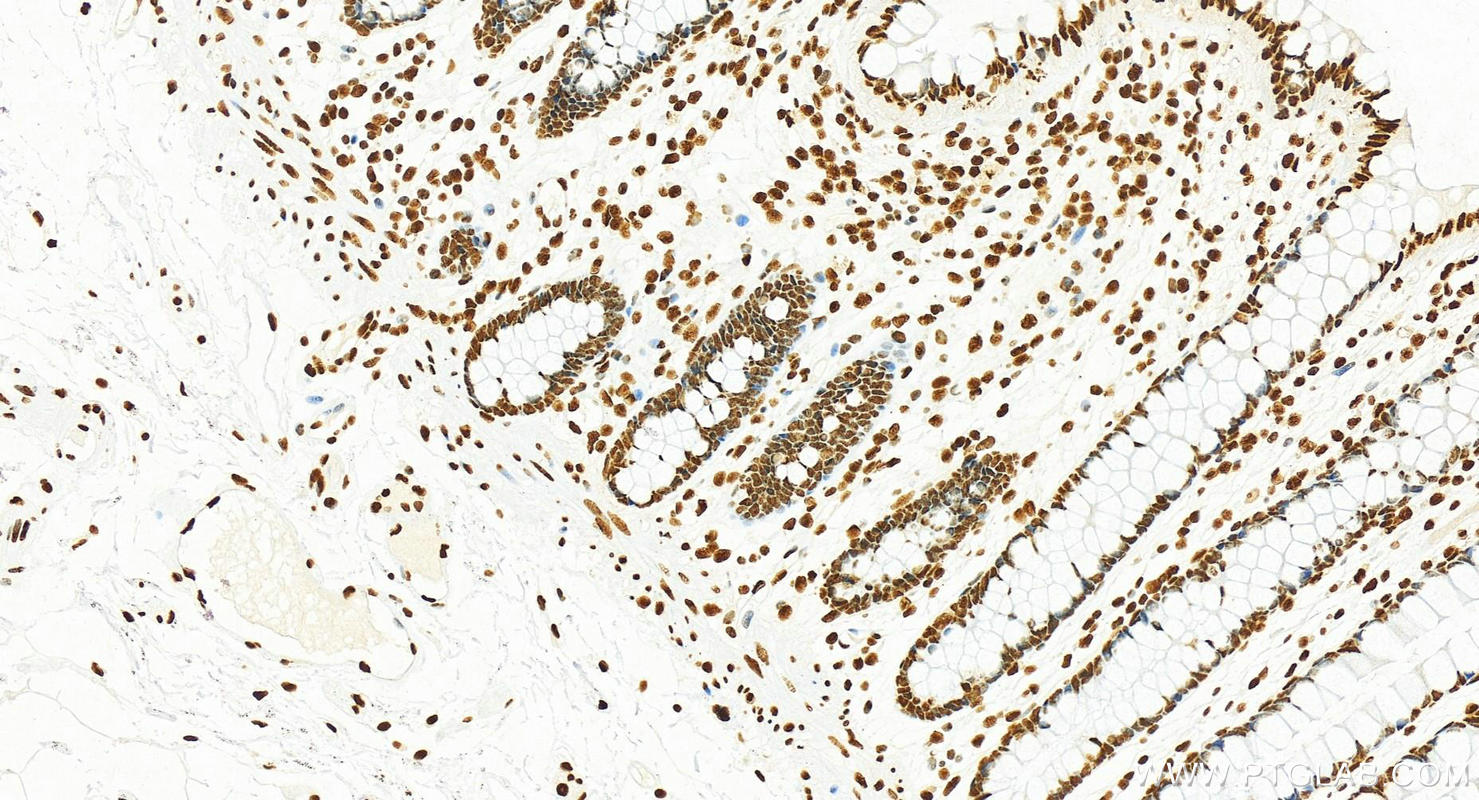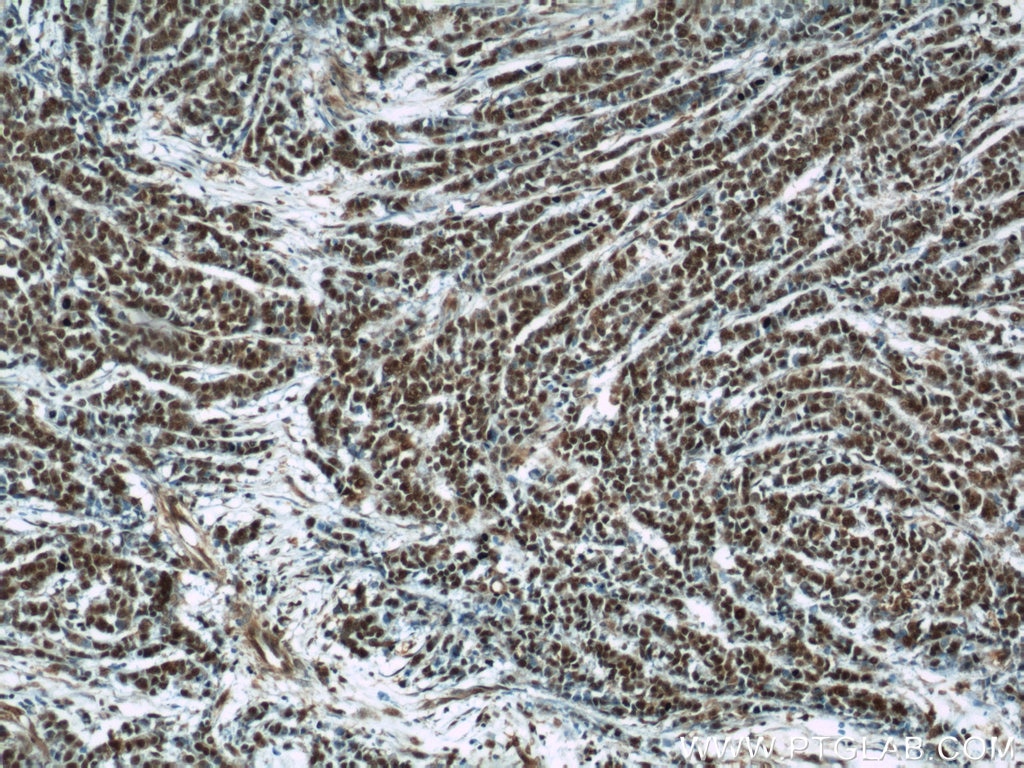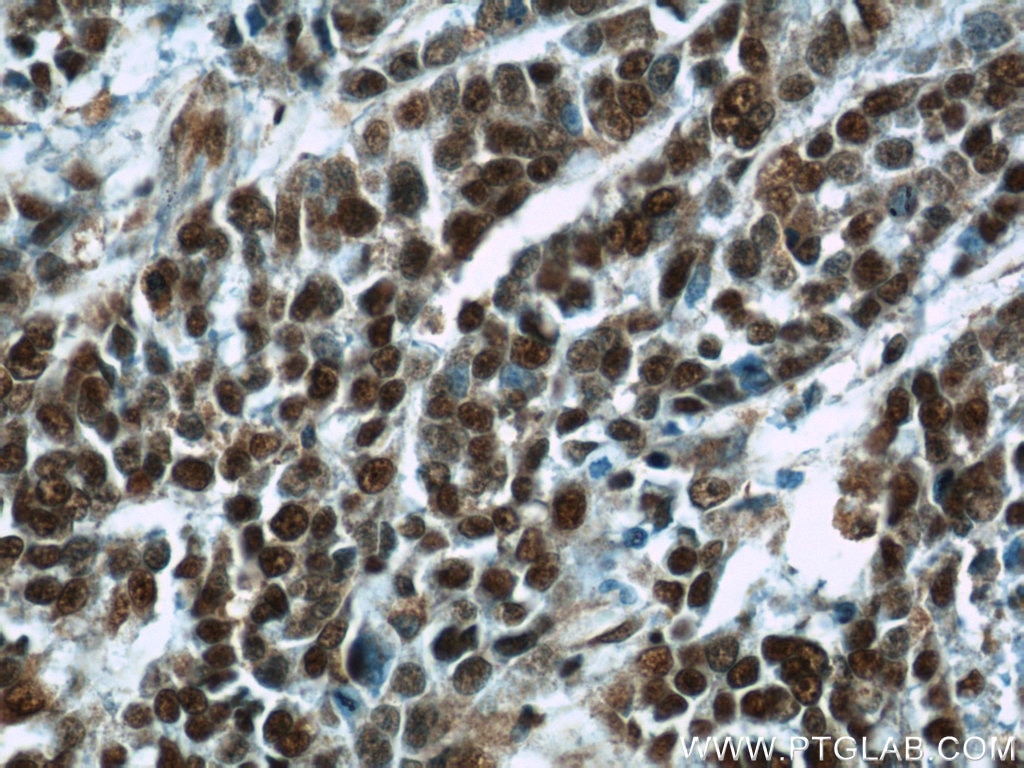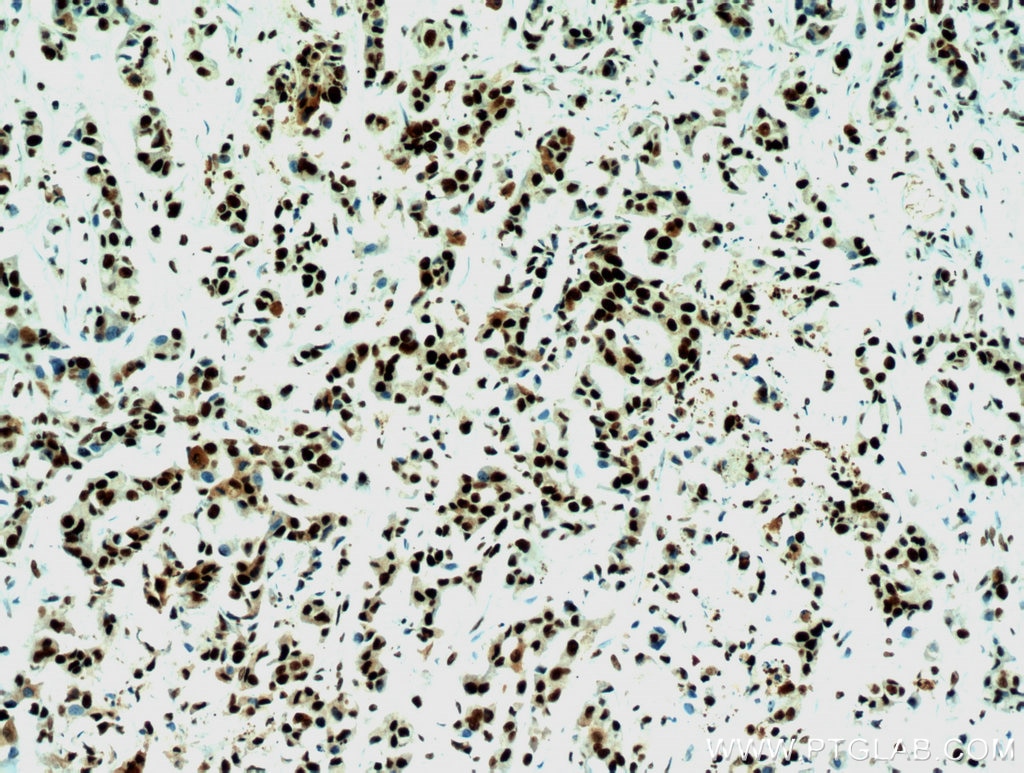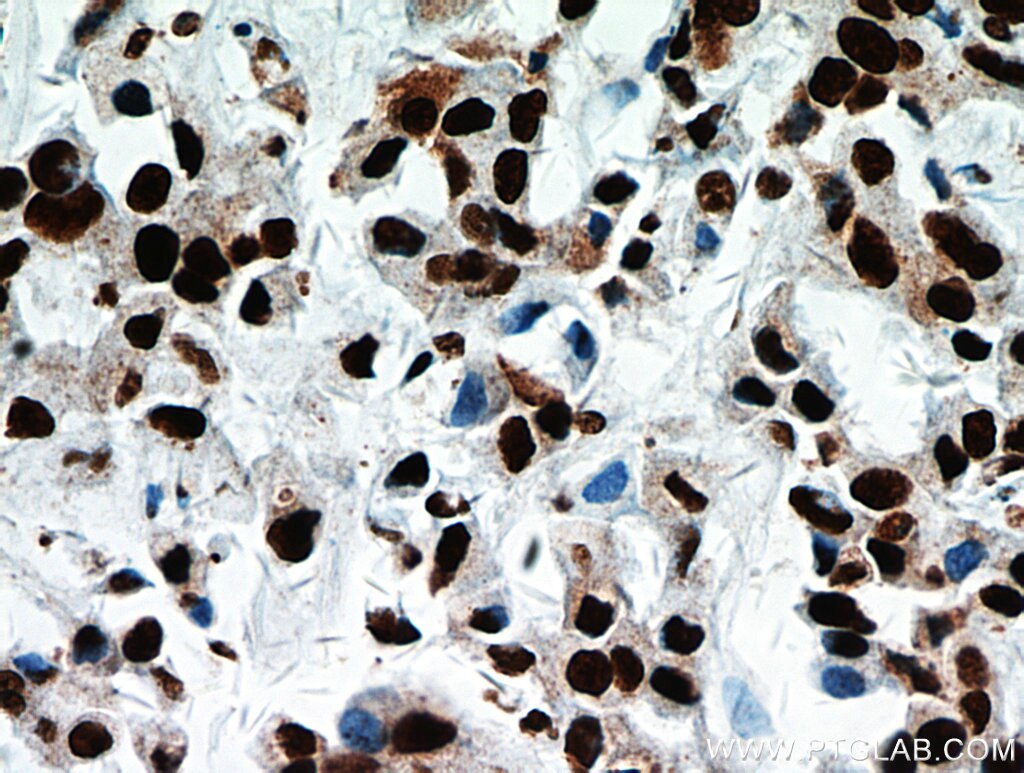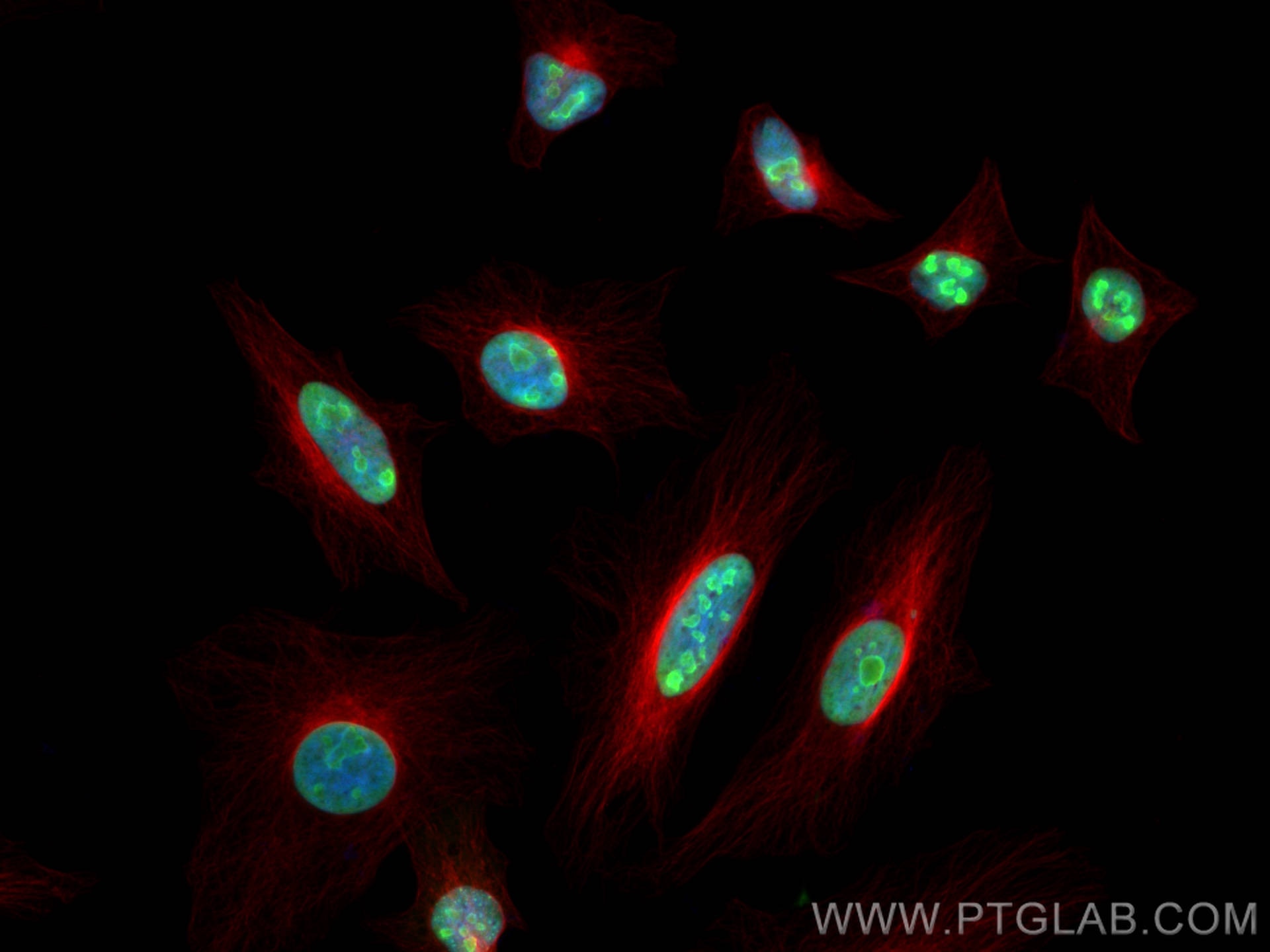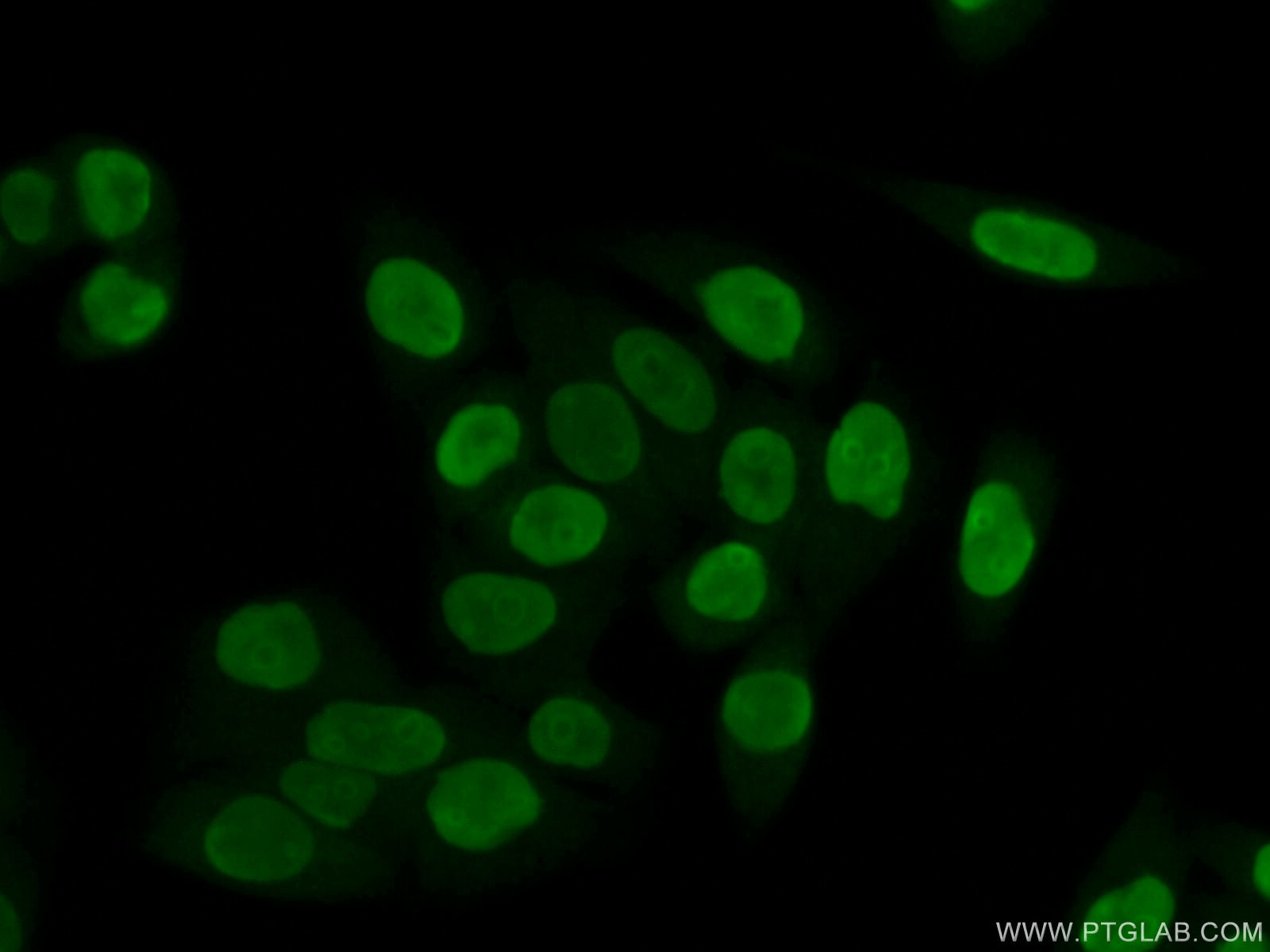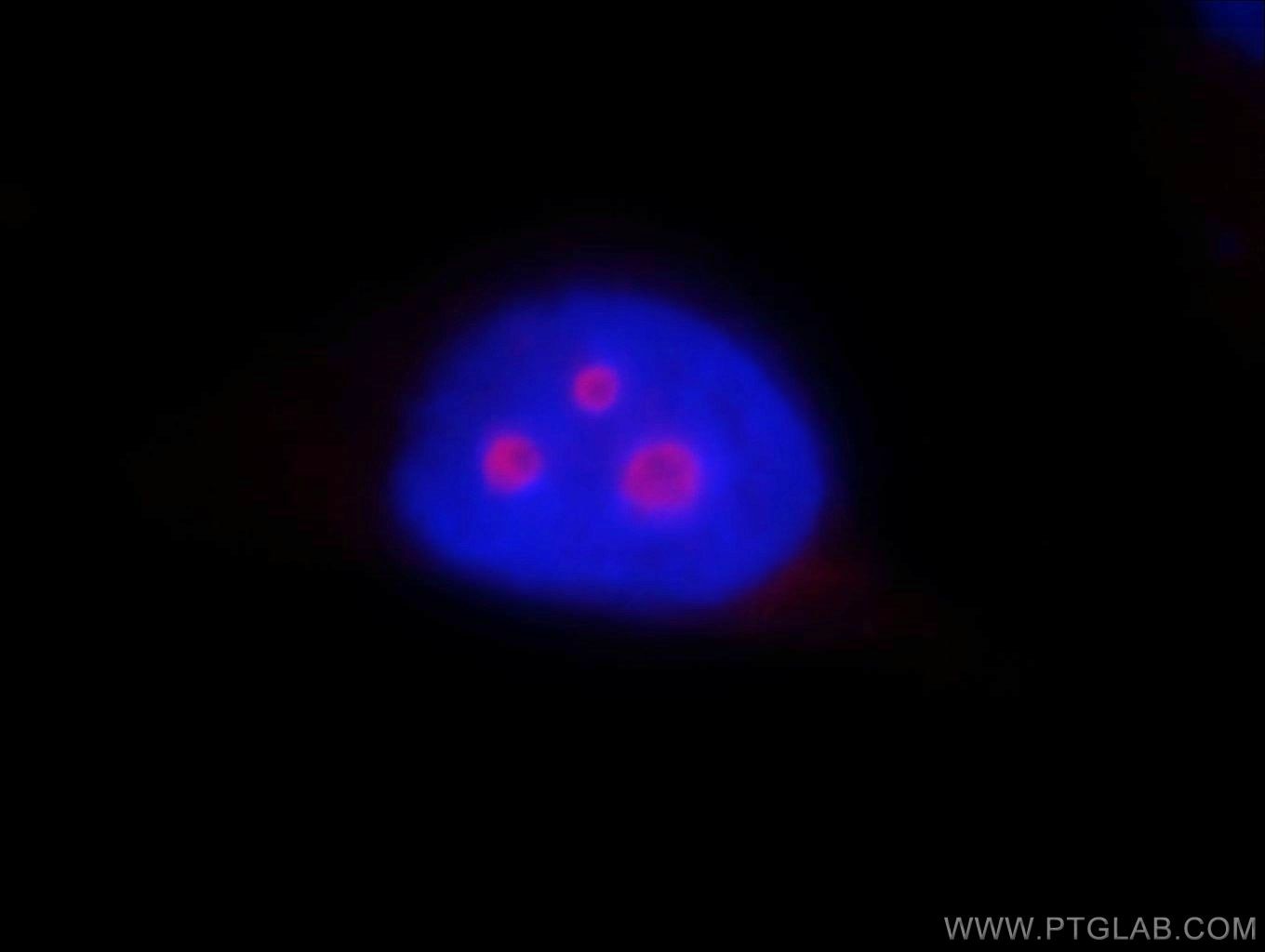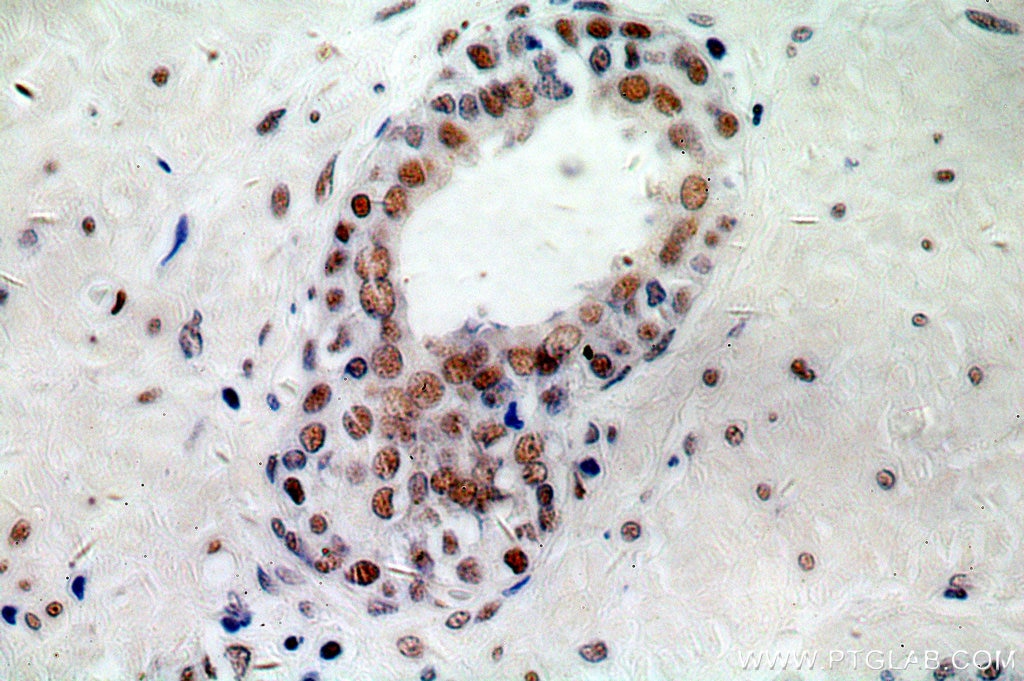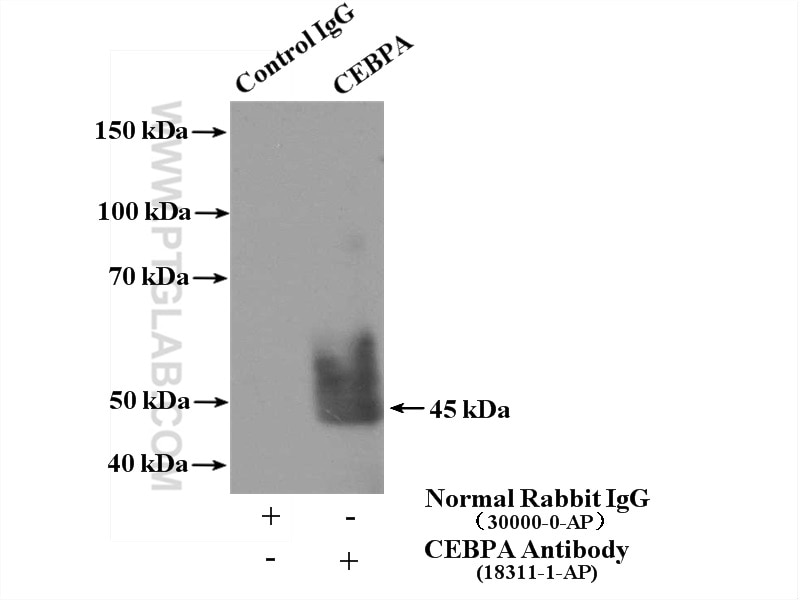- Featured Product
- KD/KO Validated
B23/NPM1 Polyklonaler Antikörper
B23/NPM1 Polyklonal Antikörper für WB, IHC, IF/ICC, IP, ELISA
Wirt / Isotyp
Kaninchen / IgG
Getestete Reaktivität
human, Ratte und mehr (2)
Anwendung
WB, IHC, IF/ICC, IP, CoIP, chIP, ELISA
Konjugation
Unkonjugiert
Kat-Nr. : 10306-1-AP
Synonyme
Galerie der Validierungsdaten
Geprüfte Anwendungen
| Erfolgreiche Detektion in WB | COLO 320-Zellen, HEK-293-Zellen, HeLa-Zellen, Jurkat-Zellen, K-562-Zellen, Multizellen |
| Erfolgreiche IP | Jurkat-Zellen |
| Erfolgreiche Detektion in IHC | humanes Kolonkarzinomgewebe, humanes Mammakarzinomgewebe Hinweis: Antigendemaskierung mit TE-Puffer pH 9,0 empfohlen. (*) Wahlweise kann die Antigendemaskierung auch mit Citratpuffer pH 6,0 erfolgen. |
| Erfolgreiche Detektion in IF/ICC | HeLa-Zellen |
Empfohlene Verdünnung
| Anwendung | Verdünnung |
|---|---|
| Western Blot (WB) | WB : 1:20000-1:100000 |
| Immunpräzipitation (IP) | IP : 0.5-4.0 ug for 1.0-3.0 mg of total protein lysate |
| Immunhistochemie (IHC) | IHC : 1:250-1:1000 |
| Immunfluoreszenz (IF)/ICC | IF/ICC : 1:50-1:500 |
| It is recommended that this reagent should be titrated in each testing system to obtain optimal results. | |
| Sample-dependent, check data in validation data gallery | |
Veröffentlichte Anwendungen
| KD/KO | See 3 publications below |
| WB | See 19 publications below |
| IHC | See 4 publications below |
| IF | See 15 publications below |
| IP | See 7 publications below |
| CoIP | See 1 publications below |
| ChIP | See 1 publications below |
Produktinformation
10306-1-AP bindet in WB, IHC, IF/ICC, IP, CoIP, chIP, ELISA B23/NPM1 und zeigt Reaktivität mit human, Ratten
| Getestete Reaktivität | human, Ratte |
| In Publikationen genannte Reaktivität | human, Hausschwein, Maus, Ratte |
| Wirt / Isotyp | Kaninchen / IgG |
| Klonalität | Polyklonal |
| Typ | Antikörper |
| Immunogen | B23/NPM1 fusion protein Ag0286 |
| Vollständiger Name | nucleophosmin (nucleolar phosphoprotein B23, numatrin) |
| Berechnetes Molekulargewicht | 33 kDa |
| Beobachtetes Molekulargewicht | 35-40 kDa |
| GenBank-Zugangsnummer | BC002398 |
| Gene symbol | NPM1 |
| Gene ID (NCBI) | 4869 |
| Konjugation | Unkonjugiert |
| Form | Liquid |
| Reinigungsmethode | Antigen-Affinitätsreinigung |
| Lagerungspuffer | PBS mit 0.02% Natriumazid und 50% Glycerin pH 7.3. |
| Lagerungsbedingungen | Bei -20°C lagern. Nach dem Versand ein Jahr lang stabil Aliquotieren ist bei -20oC Lagerung nicht notwendig. 20ul Größen enthalten 0,1% BSA. |
Hintergrundinformationen
Nucleophosmin (NPM1,B23) is a putative ribosome assembly factor with a high affinity for peptides containing nuclear localization signals (NLSs). The transport of proteins across the nuclear envelope is a selective, multistep process involving several cytoplasmic factors. Proteins must be recognized as import substrates, dock at the nuclear pore complex and translocate across the nuclear envelope in an ATP-dependent fashion. Several cytosolic and nuclear proteins that are central to this process have been identified. The 38 kDa nuclear protein nucleophosmin is involved in ribosomal assembly and rRNA transport. It is an abundant protein that is highly phosphorylated by Cdc2 kinase during mitosis.
Protokolle
| Produktspezifische Protokolle | |
|---|---|
| WB protocol for B23/NPM1 antibody 10306-1-AP | Protokoll herunterladen |
| IHC protocol for B23/NPM1 antibody 10306-1-AP | Protokoll herunterladen |
| IF protocol for B23/NPM1 antibody 10306-1-AP | Protokoll herunterladen |
| IP protocol for B23/NPM1 antibody 10306-1-AP | Protokoll herunterladen |
| Standard-Protokolle | |
|---|---|
| Klicken Sie hier, um unsere Standardprotokolle anzuzeigen |
Publikationen
| Species | Application | Title |
|---|---|---|
EMBO Mol Med Excess hydrogen sulfide and polysulfides production underlies a schizophrenia pathophysiology. | ||
Cancer Res LNMICC promotes nodal metastasis of cervical cancer by reprogramming fatty acid metabolism. | ||
Int J Mol Sci TRPV1 Activation Promotes β-arrestin2 Interaction with the Ribosomal Biogenesis Machinery in the Nucleolus:Implications for p53 Regulation and Neurite Outgrowth. | ||
Mol Ther Nucleic Acids RPL32 Promotes Lung Cancer Progression by Facilitating p53 Degradation. | ||
